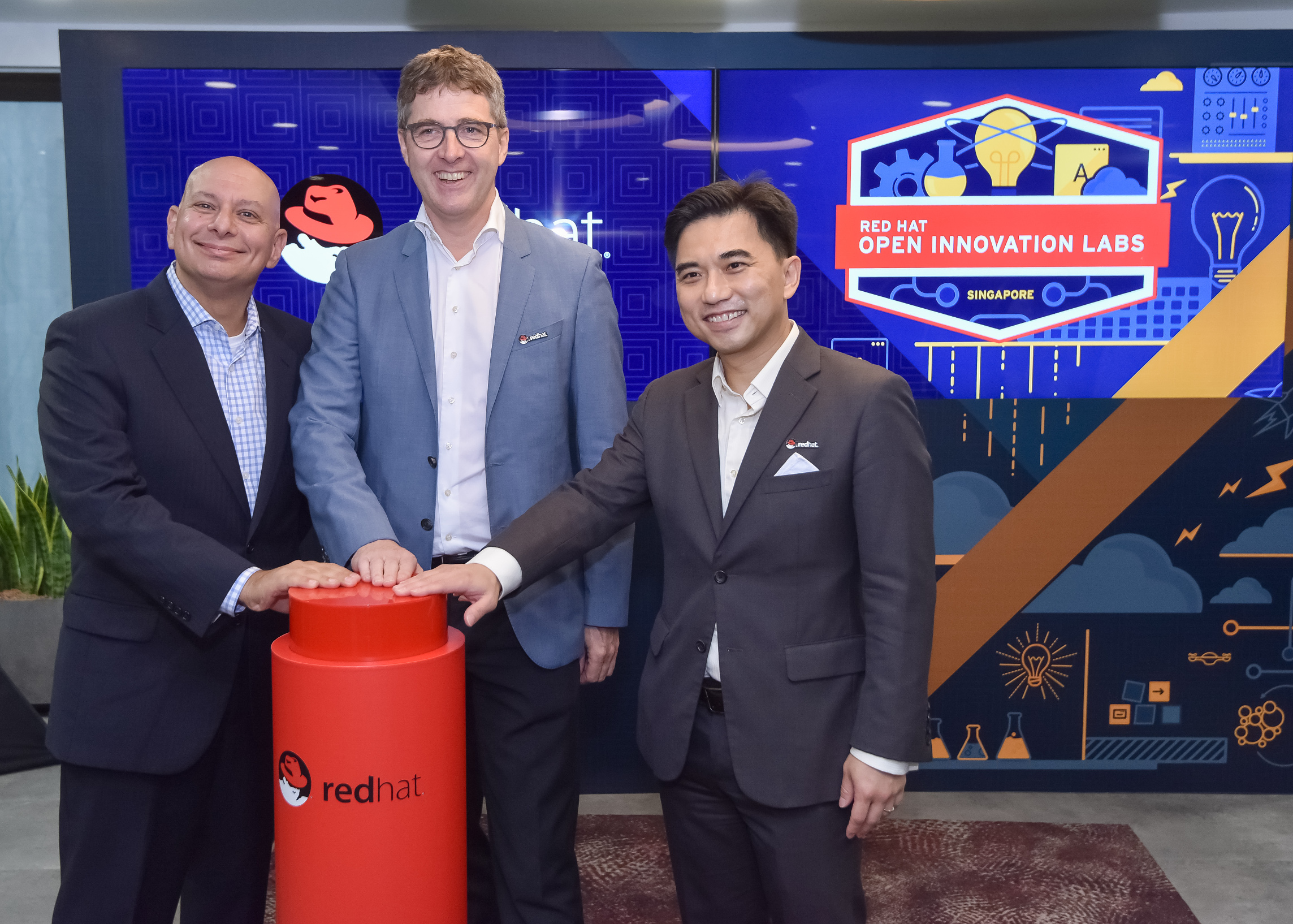Red Hat blog
Red Hat Open Innovation Labs continued its expansion, with the opening of a new location in Singapore on Sept. 26th, 2017. This is our first location in Asia after launches in Boston and London earlier this year.
Red Hat Open Innovation Labs enable customers to work collaboratively in a residency-oriented lab environment alongside Red Hat experts to help speed modern app development. We help our customers jumpstart innovation, apply community-powered technology, and increase knowledge to enable delivering innovative software success stories.
The Red Hat Open Innovation Labs are designed to help local IT professionals from organisations learn how to take advantage of open source principles to solve their business challenges. IT teams work closely with Red Hat consultants, engineers and subject matter experts to modernize existing applications or create new ones with open source and DevOps. The typical Red Hat Open Innovation Labs residency lasts anywhere from one to three months and provides IT professionals with the technologies, methods, and skills to help accelerate business initiatives. Through hands-on instruction, teams can also learn how to adopt agile development methodologies, DevOps practices, and get direct experience with open principles and open culture that underlie many open source communities.
To celebrate the opening of our newest facility, guests joined Red Hat executives and experts to learn more and get first-hand view of the space. Kicking off the day, Dirk-Peter van Leeuwen, senior vice president and general manager, APAC, Red Hat, Damien Wong, vice president and general manager, ASEAN, Red Hat, and John Allessio, vice president of Global Services at Red Hat pressed a large red ‘launch’ button to officially open the space. The launch button was a callout to the Red Hat Innovation Labs push-button infrastructure, which enables customers to get started on day one by creating their own technology stack to meet their specific application development needs. They were accompanied by a traditional Chinese lion dance for good luck. They were joined by two talented professionals who won Red Hat’s Singapore Hackathon held earlier in the week.


The first presenter was John Allessio. John showed examples from the Boston and London Open Innovation Labs showcasing how organisations can jump-start modern application development and accelerate the cultural transformation.
Up next was Nick Hopman, senior director of Emerging Technologies at Red Hat, who shared his views on how Red Hat Open Innovation Labs provides an environment for customers to develop applications with greater speed, agility, scalability, and increased security.
The highlight of the day was a tour of the Red Hat Innovation Labs with David Worthington, leader of Open Innovation Labs in APAC for Red Hat. As part of the tour, guests were exposed to a visual walkthrough of an internal Red Hat Innovation Labs engagement, showcasing the steps, processes, and outputs of a 12-week residency.

The day’s proceedings continued with two guest speakers sharing examples about how they “Innovate Now!”
-
Paul Cobban, chief data and transformation officer at DBS Bank discussed the transformation journey that took the bank from being “bloody slow” to creating a culture of innovation and to being regarded, in his words, as, “a digital pioneer that is working to make banking truly joyful for its customers.”
-
Julian Austin, IT development manager at Motability Operations shared his organisation’s experiences using Red Hat Open Innovation Labs. The DevOps-friendly environment helped inspire the business to move towards a new way of working, reduce costs of its infrastructure platform, and drive business value.
Thanks again to all our attendees and participants. Visit our APAC Red Hat Open Innovation Labs website for more information.
About the author
Red Hat is the world’s leading provider of enterprise open source solutions, using a community-powered approach to deliver high-performing Linux, cloud, container, and Kubernetes technologies.

